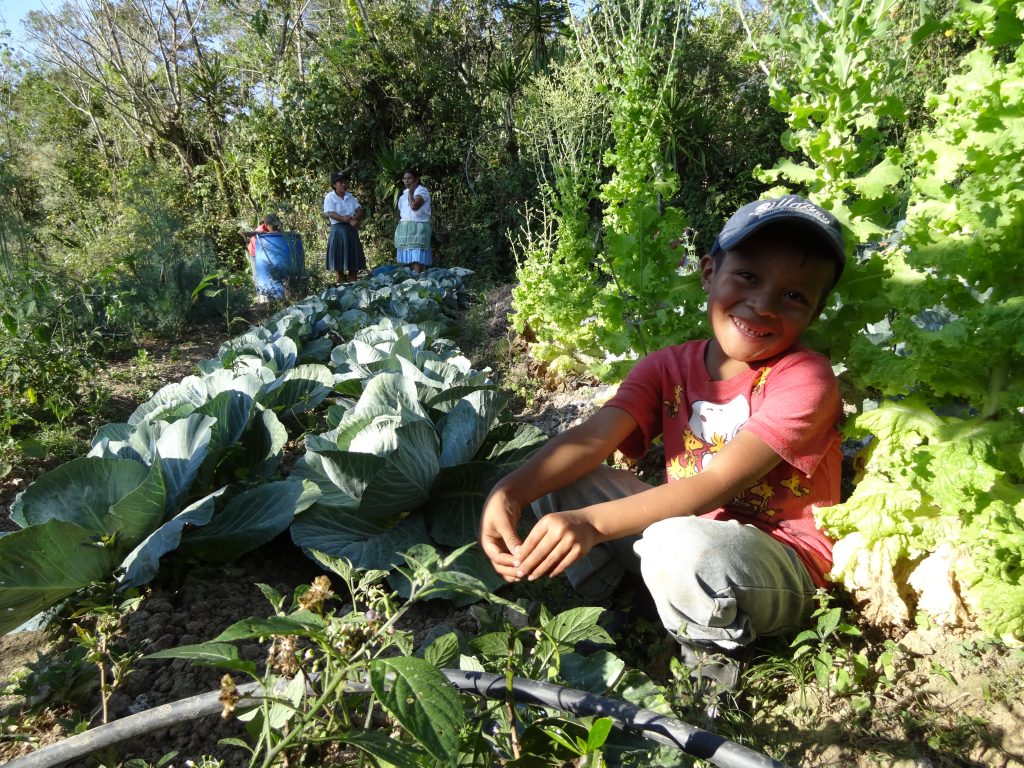In July 2015, Project Harvest expanded its work into two new communities, Tunuco Abajo and Oquen. Both communities are extremely poor. A primary reason for this is their geographical location in the heart of Guatemala’s dry corridor. It is here that the effects of climate change have been most severe. Recurring droughts have had a terrible impact on the lives of people living in this area. Despite these challenges we decided to locate here and to test the Project Harvest model, that is, to improve family food security, through the implementation of family gardens. In each of these two new communities we are working with 33 families. In total, the number of people benefiting are 456 men, women, children, teenagers and the elderly. On average the gardens measure 100 square meters. In the beginning the soils were very poor. The land was transformed by using good soil conservation practices such as terracing and the application of abundant organic matter such as worm compost and the use of good quality seeds. The gardens are duly fenced to keep animals out.
Santos Méndez, agricultural promotor who is in charge of the technical support, is accompanying the process. During the first year there were two plantings, taking advantage of the rainy season. These first plantings generated confidence among participating families since crops were abundant. The harvest consisted of radishes, Swiss chard, cabbage, MISSION lettuce and onions, in addition to other native crops such as chipilín and quilete. Of the total harvest, 70% was earmarked for family consumption and 30% was for sale in the community or in local markets. Some families managed to earn up to $150 by their sales. This money is very important because it serves to buy soap, sugar, salt and some basic medicines for families.
This success is the result of being clear about what we are doing based on our experience of systematically developing our model. All together Project Harvest works in ten communities with a total 414 families. Each community has a Board of Directors which acquires capabilities of leadership. The concrete evidence of our success in the implementation of family gardens to help feed the families and enhance their respective organizational skills can be seen by neighboring communities. They are now asking to be part of Project Harvest because they can see how effective our work is. We are becoming a benchmark in the region regarding our approach and method of work.

